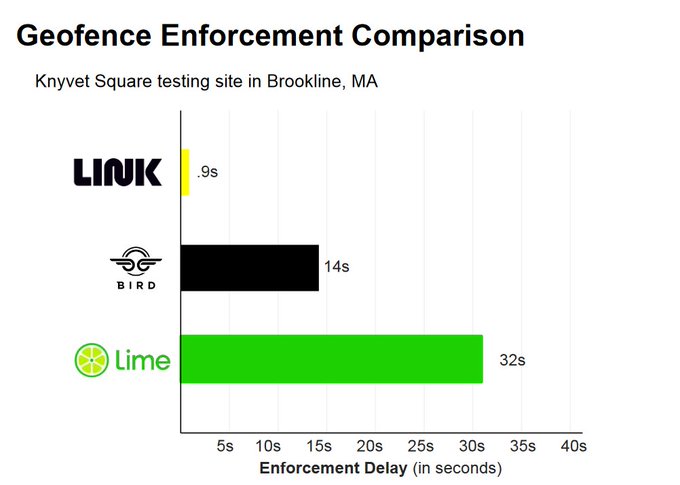Manhattan residents may be sharing their streets and sidewalks with electric scooters before summer.
The City Commission Tuesday unanimously voted to authorize city administrative staff to negotiate a contract permitting the company Zagster to deploy a 500 e-scooter pilot program in the city and on the Kansas State University campus. The contract will return to the commission for final approval, which if given will open the pilot for a six month period.
Zagster, originally from Boston, was founded in 2007 as a bike share company and has since expanded into the e-scooter side of the micromobility industry. The company currently manages more than 250 micromobility programs, including Wichita’s e-scooter and bike share programs.
The city defines micromobility devices as electric-assisted bikes and scooters as well as motorized and self-balancing skateboards and even bicycles deployed by “micromobility network companies” — though not motorized wheelchairs and other “electric personal assistive mobility devices.”
K-State and Manhattan officials collaborated for the selection process, in which the university received six proposals from micromobility network companies. Zagster was chosen from three finalists that included big name competitors Lime and Bird. The university is hoping for an April roll out date.
“Main thing is safety,” says Mayor Usha Reddi. “And even though this is a trend, [we’ll] see how well we can utilize it to give people many options to be mobile in our community.”
Under the tentative plan, Zagster employed staff would oversee fleet deployment, charging, maintenance and programming but the company does not manufacture its own e-scooters. The actual scooters would be provided by Zagster partner LINK, a subsidiary of Superpedestrian and a different company than who provides scooters to Wichita.
“From the public perspective, you’re going to see LINK scooters everywhere,” says Assistant to the City Manager Jared Wasinger. “You’re going to download the LINK app, you’re going to see some Zagster employees throughout the community helping manage, deploy, rebalance these scooters.”
A relative newcomer to the market, Superpedestrian was founded at MIT and late last year raised $20 million in funds to develop a more durable e-scooter amid concerns about the longevity of major e-scooters brands. A look into the LINK app shows only one community in which they are operating — Fort Pierce, Florida — and the app has less than a thousand total downloads compared to millions by competitors Bird and Lime.
Technological capabilities were driving factors behind city and university officials’ choice to settle on LINK scooters managed by Zagster. All major e-scooter companies have the capability to digitally “geo-fence” speed limits or ride restrictions in certain areas using GPS. Wasinger says where LINK differs is in using GPS systems internal to the e-scooter rather than the rider’s phone GPS system, reducing delays in speed reductions or no-ride zone restrictions kicking in.

“This geo-fencing with Zagster was the tightest geo-fencing of all of the companies that we interviewed,” said KSU Chief of Staff Linda Cook. “That capability to be able to control speeds in different areas and the way they designed the scooter just was miles ahead of the competition.”
The decision garnered some criticism on social media. Brandon Savage of Manhattan called the choice to go with Zagster “disappointing” and questioned LINK’s enforcement claims, saying that competitors Bird and Lime are more efficient.
I… can’t… even…
Bird has 751K ratings for an average of 4.9 stars
Lime has 1.4M rating for an average of 4.9 stars
LINK has SEVEN ratings for an average of 4.0 stars
Small time, indeed. How embarrassing. pic.twitter.com/byuaXa7DvK
— ??????? ?. ?????? (@biff_savage) March 4, 2020
Geo-fencing can be tweaked as needed for special events, games or if trouble hotspots arise at a later date. Commissioner Linda Morse again reiterated her support for making Triangle Park geo-fenced, concerned that it would become a parking lot for e-scooters.
The software can be used to address such concerns, with the capability to bar riders from ending rides in set locations as well. That fact was an important factor in securing Aggieville Business Assocation Executive Director Dennis Cook’s support.
“With all the construction and things that we’re getting ready to have in Aggieville, we’re getting ready to lose more parking before we gain parking,” says Cook. “Anyway to have people have a better ability to get in, we’re all in favor of that.”
The city passed e-scooter regulations last year that were largely in line with the state of Kansas, which treats the vehicles as bicycles under the law. Just like bicycles, e-scooters will not be permitted on sidewalks in the Aggieville and Downtown districts.
Superpedestrian also boasts a vehicle intelligence system on its LINK e-scooters that they claim constantly scans for damage and malfunctions and actively seeks to address them and prevent further damage. If an issue cannot be solved, the e-scooter can automatically flag itself as unavailable and request maintenance. They also claim superior braking distances to their competition.
Zagster’s local presence was also a selling point to officials. Zagster plans to hire traditional, W2 employees, rather than rely on “gig economy” work as well as establish a warehouse in the city as a central headquarters for maintenance, charging and other operations. Depending on weather, employees will deploy LINK e-scooters at 7 a.m. every day and collect every unit after 10 p.m. nightly.
That among other provisions helped ease some of Mayor Pro Tempore Wynn Butler’s misgivings.
“I was a little bit concerned about late night driving around on scooters in Aggieville at 2 a.m. when the bars close,” says Butler. “That avoids that entirely.”
Under the proposed deal, Zagster would also coordinate with Green Apple Bikes to assist with collecting and deploying their fleet of bikes while G.A.B. would help Zagster with community outreach. The groups will cooperate to spread mutual awareness of one another while also promoting helmet use and possibly providing some for free. Commissioners discussed the possibility of revisiting helmet regulations depending on whether they see an uptick of injuries following deployment.
If deployed, the e-scooters would cost $1 to unlock and an additional 15 cents per minute of use. The app requires riders be 18 years or older to ride and requires users to scan a government issued photo ID card to qualify — though they have a separate process for those unable to attain one.
Manhattan and KSU would get a piece of the revenue — either 25 cents to the city or university depending whether the ride started on or off campus or a 50/50 split of a flat $180 licensing fee per vehicle amounting to an estimated annual $45,000 a piece. A majority of commissioners voiced support for placing proceeds into the city-university fund for use in projects of mutual benefit for Manhattan and K-State.


